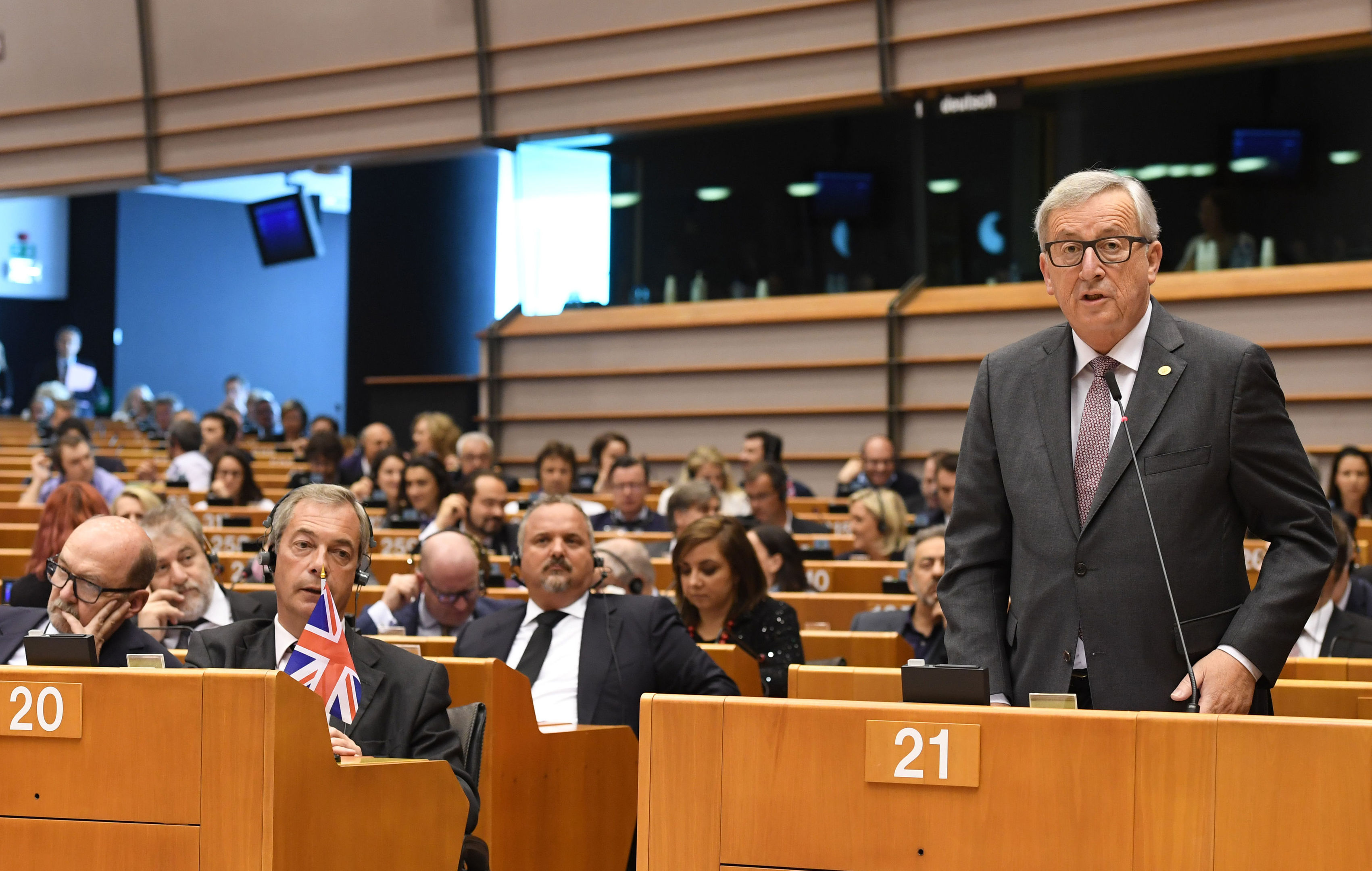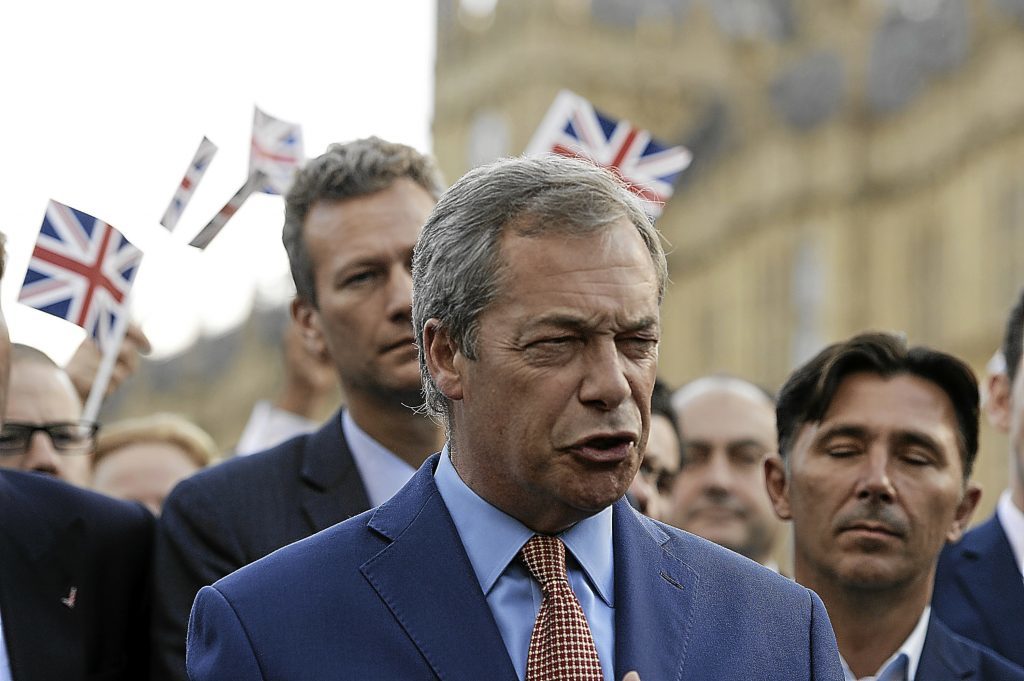UK ministers are preparing to agree a deal that would see European citizens living in Britain keep their residency rights when the country leaves the EU.
Sources in Strasbourg, where MEPs yesterday voted in favour of a tough line on negotiations, said that sign off was expected early in the forthcoming talks.
The expected agreement would see both Brits abroad and those from the continent living in the UK continue under current conditions as long as they are registered as living in their respective new homes “the day before Brexit”.
It is also understood that the Conservative government thinks agreeing the funding formula to establish how much money the UK owes the EU upon its exit will be relatively straightforward to and accepts “they are going to have to pay”.
One EU insider described ministers as being “surprisingly bullish about the issues.”
A UK Government spokeswoman said: “The Prime Minister was clear in her letter to the President of the European Council that that we should seek an early agreement on the rights of UK nationals in the EU and EU nationals in the UK, on a reciprocal basis.
“This is a priority issue for the forthcoming negotiations and as the Prime Minister has emphasised, we will always put the interests of citizens first.”
MEPs backed by a margin of 560-133 a resolution tabled by the leaders of the main party groupings, which set out red lines for the withdrawal negotiations under Article 50 of the EU treaties.
The parliament – which has an effective veto on the deal reached after two years of talks – insisted Britain must meet all its financial obligations and rejected “cherry-picking” of privileged access to the single market for sectors of such as financial services.
MEPs heard the European Commission’s president Jean-Claude Juncker and chief Brexit negotiator Michel Barnier restate their rejection of Theresa May’s appeal for divorce and trade talks to be held in parallel, insisting that the EU could not deal with its future relations with the UK until the terms of withdrawal were “fully resolved”.
Both insisted the UK would have to pay a divorce bill to settle financial commitments entered into as a member state, with Mr Barnier saying: “We do not seek to punish the United Kingdom, we are simply asking the United Kingdom to deliver on its commitments and undertakings as a member of the European Union.”
Guy Verhofstadt, the parliament’s Brexit coordinator, did not give a figure for Britain’s exit bill during a press conference, saying he wanted to agree a set of principles for the payment.
He said: “Our proposal is to agree on the principles and if we can agree with the UK authorities on the principles that all commitments have to be taken on board, that all liabilities have to be on the table, also the contingent liabilities, well then it will be easier, because if you agree on the principles, then you apply the principles and you have the figure.”
Shadow Brexit secretary Sir Keir Starmer said: “It is important that the European Parliament has reached agreed guidelines, and we particularly welcome the emphasis that negotiations should be conducted in ‘good faith and full transparency’.
“Labour also strongly support the Parliament’s insistence that a future EU-UK deal requires the UK to retain international standards on human rights, climate change, social rights and the fight against tax evasion and avoidance. Labour’s six tests for the final Brexit deal made clear that there can be no drop in EU-derived rights and protections.”
Meanwhile, a veteran Labour MEP has said the UK’s Brexit vote could lead to him backing Scottish independence.
David Martin said, however, that Theresa May should not allow Nicola Sturgeon to hold a second referendum until after the 2021 Holyrood elections so that voters are able to see what the UK’s future outside the EU looks like.
Mr Martin, the second-longest serving MEP in the European Parliament, voted No in 2014 but said the Leave result last June has left “a whole lot of questions that have yet to be answered”.
The First Minister has insisted Scots should be given a fresh choice on independence in the wake of the Brexit vote.
She wants such a vote to take place between autumn 2018 and spring 2019 when the terms of Brexit are clear.
However, her calls have been rebuffed by the Prime Minister, who has insisted “now is not the time” for such a ballot.
Asked by The Courier when he thought the shape of a Brexit deal would be visible, Mr Martin said October 2018 would be an “optimistic” assessment.
He added: “If I were Theresa May, I would say Brexit will happen in 2019, there is the General election in 2020, the Scottish Parliament election in 2021 and if the SNP gets a fresh mandate in 2021 it would clearly be entirely wrong for the British Government to block that.”
Scottish Conservative MSP Miles Briggs said: “This is yet another senior Labour figure underlining just how weak the party is on Scotland’s place in the UK.”
Alyn Smith, the SNP MEP, said: “Scotland will not be silent in this process as our rights are taken away by an administration we do not support, by a vote we clearly rejected, and a process that is demonstrably against our interests.”
Ukip’s David Coburn said: “The British people voted to take back control and for the UK be sovereign again.”
Spanish centre-right MEP Esteban Gonzalez Pons, who has previously been hostile to the idea of Scottish independence, appeared more sympathetic during the debate.
He accused the UK government of “preventing Scotland staying part of Europe while at the same time they want… Gibraltar to continue to be a tax haven”.
Earlier, Nigel Farage had been heckled after accusing MEPs of “behaving like the mafia” over the conditions of Brexit.
The former Ukip leader was told to retract his “unacceptable” remark by the Parliament’s president, Italian Antonio Tajani, and said that, in respect of national sensitivities, he would instead brand them “gangsters”.


